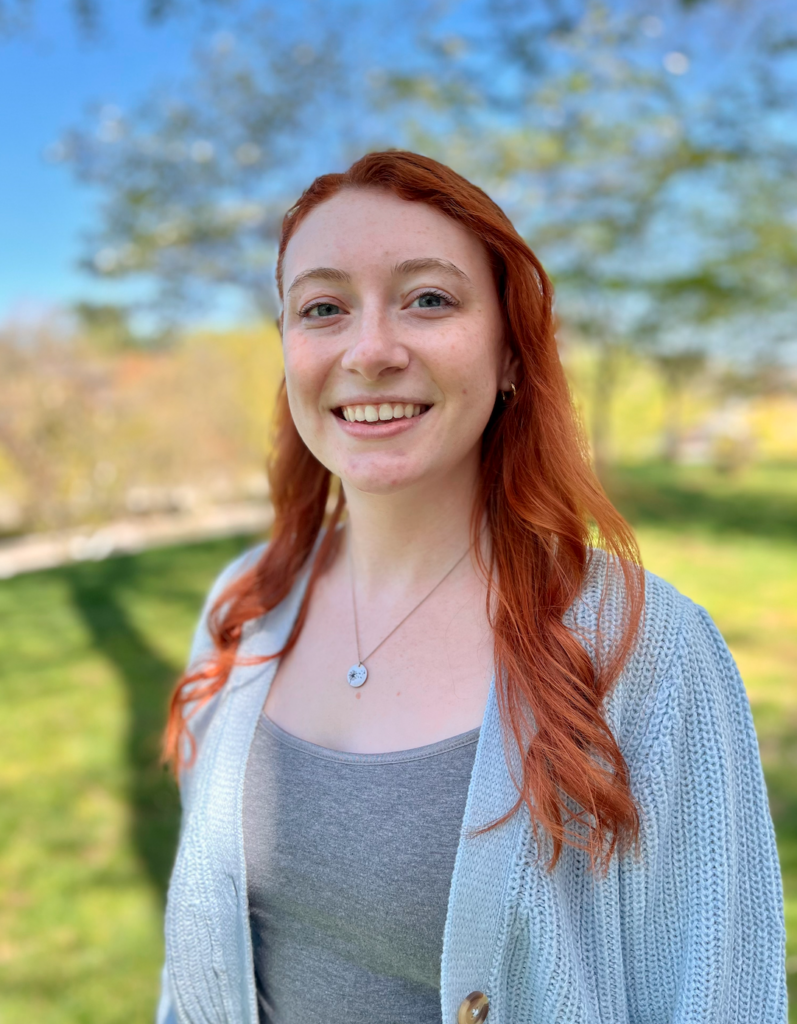Ashley Catanzarite | Student Spotlight

Meet Ashley!
“The program brought my understanding of science further than what I could find in any of my undergraduate textbooks. I hope to utilize what I have learned about specific pathogens and toxins, about public health responses, and even international relations to be a better informed and more capable physician.“
– Ashley, Class of 2022
About Ashley
Ashley (she/her) graduated in 2021 from Indiana University South Bend with a BS in Biochemistry. There, she worked in a research lab focused on creating nanostructures using antibody fragments and a periplasmic binding protein. She also worked as a pharmacy technician in retail and hospital settings. She will graduate from the Biohaz program in May 2022.
What made you choose Georgetown University for your MS degree?
Prior to beginning this program in August 2021, I had not left my hometown for any considerable length of time. I attended preschool through undergrad degree in the South Bend, IN area. I chose Georgetown for a master’s program because the setting was vastly different than what I was used to. I knew moving to the DC area would open me up to new experiences, but I never could have anticipated the expansive networking opportunities provided here. Georgetown’s location brought me here – the community of invested and interesting professors and peers made me excited to stay.
What sparked your interest in the biomedical field?
Biology and chemistry have always held my attention, but my interest in this program was entirely a product of the COVID-19 pandemic. I had been employed at a hospital since the pandemic’s beginning and watched the outcome of the disease firsthand. I couldn’t help but wonder what would happen if such a pathogen was weaponized. What would our public health response look like? How could hospitals prepare? Wanting answers to these questions is why I pursued the field.
What is one thing you wish to improve about the Biohaz program?
The number of guest lecturers who speak within classes at the program is an incredible resource, but it also lends to some of the material taught being highly repetitive. I sometimes wish there was a bit less overlap between the material that guest lecturers include in their presentations.
What has been the most valuable experience you’ve had or course you’ve taken in this program?
My background is in biochemistry, and I have always been deeply interested in science and the details of chemical pathways and mechanisms. As such, I had little to no working knowledge of the policy and tactical considerations involved in controlling disease in conflict areas, for example. Expanding my knowledge set to include policy in the context of bigger-picture scientific concepts like disease treatment abroad and countering weapons of mass destruction has been incredibly valuable and interesting. One of the most valuable courses I took was Infectious Disease and Conflict, which taught me the complexities of disease treatment and prevention in non-traditional settings and during ongoing violence.
What do you hope to do with your degree?
I will be attending the Indiana University School of Medicine following graduation.
How has the Biohaz program helped prepare you for medical school?
The program brought my understanding of science further than what I could find in any of my undergraduate textbooks. The policy and real-world topics discussed in the program added important context to what I already knew. I hope to utilize what I have learned about specific pathogens and toxins, about public health responses, and even international relations to be a better informed and more capable physician.
What advice would you give to prospective students?
Make partnerships! The best advice I can offer is to find friends in your peers and find advisors in your professors. They have a wealth of knowledge that they are more than happy to share. The community they provide is priceless.